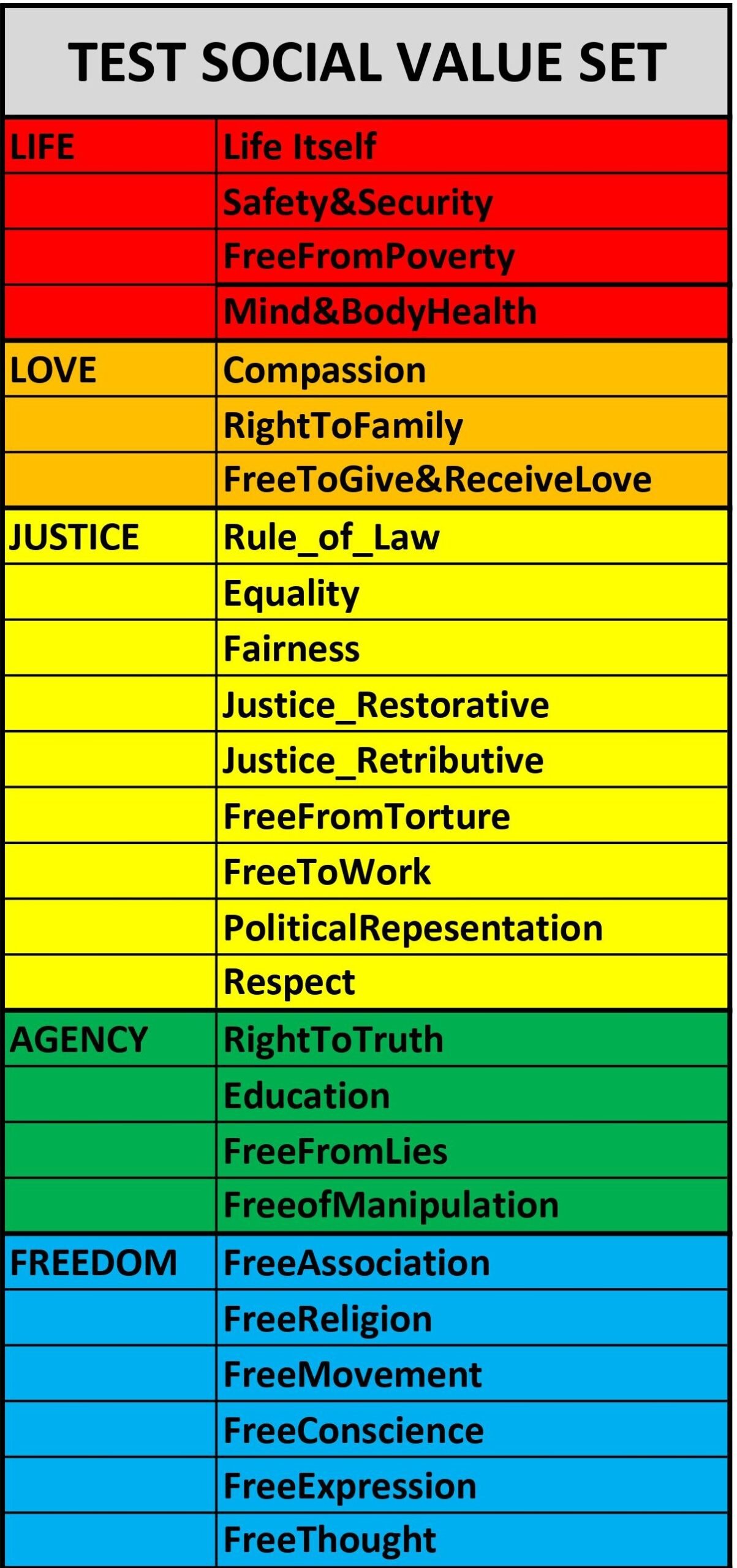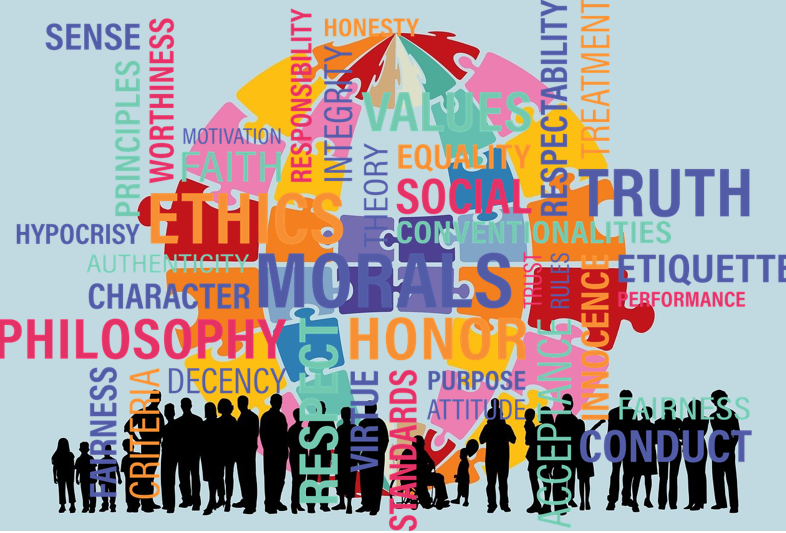Status: First Draft Published for comment
The overriding requirement is for us (the application development team) to provide a blank framework and an intuitive, unbiased process for the public to represent their values efficiently and accurately. Wherever they are is our starting point, however they express their values.
We also need a system which is a nearly self explanatory as is practical and achievable. Just simply explaining what the system is for and how it works involves using examples. To generate these examples I have had to insert a set of Social Values. So inevitably and unfortunately I have introduced a very personal bias in order to ‘bootstrap’ a process that grows less biased the more people contribute.
Describing the general Use Case: Optimising the application for widespread usage. How many users are we planning for…
Using a social process to register a persons values and activities and especially ideas for shared activities is intended to help us chose options that generate more human value, some of which may involve new understandings and changes in behaviour.
We don’t need a huge proportion of the general population (in any largeish community) to register their values, for the database to be representative. This is one of the counterintuitive features of Polling theory e.g. when MORI or IPSOS try to predict voting during election (https://www.ipsos.com/en-uk/three-frequently-asked-questions) 1000 to 2000 people polled can give a quite accurate picture of the 42 million population! In fact, in reality, we need to take additional profiles from each sub group that we want to be able to provide a perspective for, so if we wanted 100 subgroups, we might need 100,000 samples.
The design aspiration, would be to have enough people active to improve the alignment of universal (or intrinsic) values with personal intuitions and collective/societal decision making. At times, some initiatives would need a majority of the public to be engaged (and have faith in the trustworthiness of ‘the system’) – we need these people to feel confident in their awareness of their options and impacts of prospects.
We should be aiming to exceed the number of active participants that a polling company would say was required for the views to be representative of the general public. Let’s say we are looking to exceed it by a factor of at least ten. I personally would like to see the majority of the population involved in some way, that these processes could be thought of as similar to voting in terms of the numbers involved.
Let us say that a design requirement could be for 1 in 1000 citizens to have profiled their values, but for credabiity we might wish >= 1 in 100 to participate.
I would expect the first people to start using the system to feel they need to register new values. As the register grows however, I would expect later joiners to be able to select satisfactory predefined values from a pick-list. The intention is for the pick-list to present social values that are most popular/likely, nearer the top.
I believe that when users log in we will encourage them to complete a personal value profile. This could be from Schwartz or could embed the process employed here (by ClearThinking.org), I would like for us (the app development team) to build up a correlation between this user profile (by Schwartz or Others) – augmented by other information…to allow us to provide a reasonably accurate, sufficiently good pick-list of social values for the users to modify and confirm quickly and efficiently (whilst avoiding echo chamber bias).
The design intent is to make it simple for the user to define a quick, sufficiently good social value profile. They are then invited and expected to modify and tune their profile, as time goes by, as they change.
Where did the Social Values shown in the example Value/Prospect schematic come from.
In practice I have felt it necessary to provide a starting set of societal values for the demonstration value prospects schematic.
It cannot be stated strongly enough that although I have populated the demonstration schematic, I do not intend or wish to unfairly promote my own versions of societal values or prospects. The simple act of loading my data nevertheless has this appearance/effect.
The demonstration schematic is mainly for showing to potential project collaborators. You could help me to make it more generally representative by sending me your suggestions for Societal values and Prospects. There probably is a much more objective and or better source for the global/international and national cares and concerns of peoples, I would be very interested to know about it…
As a design team, we need to think the launch/roll-out through and ideally obtain a fair and reasonable cross section of Social Values and Prospects in order to illustrate the potential of the process with a minimum of bias.

The ultimate design intent is to be able to offer a range of pre-defined societal values which feel relevant and suitable for 95 to 99.7% of people, most of the time.
The registration process (for Societal values) is intended to strengthen the shared understanding of their meaning through usage. That is by registering and making accessible a range of direct experiences, descriptions, stories, interactions, clarification and communications.
The definitions and meanings of the values are expected to evolve, so in a certain way it should not matter if the emphasis or initial definitions of the demonstration system are imprecise or unrepresentative of the majority.
The mix of values /rights /freedoms I used originated from various national constitutions and world bodies See UN Declaration of Human Rights (link), International Covenant on Civil and Political Rights (link), International Covenant on Economic, Social and Cultural Rights (link)…
We need the form and style of social values to be usable for impact assessments, we need them to be familiar and meaningful to voluntary contributors and the general public…
Of course I would welcome a systemic and ‘ready made’ framework of Societal Values, so if you know of one I should have known about – help me out please.
See the Appendix for ChatGPT’s suggestions (and add any more authoritative or practical lists you believe would help with this)
Discussing possible processes for evolving a meaningful set of representative societal value definitions.
I am not competent to comment on the statistically correlated validation methods used to determine the Schwartz set of ten (or more latterly fifteen) personal universal human values.
I note that for practical purposes we need to support functional conversations between members of a community (which may have it’s own colloquial use of language). In a sense the Prospect and Impact components of the application could operate with quite arbitrary social value definitions sets. The main functional requirement for cooperation is that the community itself has a stable shared understanding of that ‘meaning’ and has a shared commitment to it.
In fact the grouping algorithms of the bibliometric analysis tools (like VosViewer ), i.e. placing nodes that are associated in closer proximity… are or result in (it seems to me) a form of sense-making.
Supporting the evolution of a shared language/understanding.
This sort of functionality – identifying and grouping correlated and similar elements, can be used to support the evolution of ‘peoples’ definitions’ that improve through use…
For example, given sufficient data…some proposed values might nearly always be used together in impact analyses. Let us say 2 values always occur together in impacts, with similar strength-of-significance. In this case we could consider merging the pair into a single value representing both. We can use automated queries within the database to establish who has used the outgoing definitions and ask them if they would agree to review and adjust their previous contributions using the new definitions.
In an opposite situation we may find that some proposed societal values will appear sometimes closely linked/correlated with one cluster and at other times closely linked to another cluster. This would be an indication that we could consider forking the single ambiguous definition into two. Again in a social database, we can contact and adjust the usages – which has the effect of informing, aligning and reinforcing the understanding of the people using this definition. The system is active in helping an ‘evenly spaced’ net of definitions.
In an alternate strategy we might also consider forking where the density of significance is very high, where additional nuance was continually being used to distinguish between closely related instances of values…it may simply be less ambiguous to define an extra value despite it being very similar – for clarity and refinement of heavily/densly used value definitions/concepts.
.
APPENDIX A:
ASK Chat GPT “what are the most reliable sources of lists of societal values”
- World Values Survey (WVS):
- The World Values Survey is a large-scale, cross-national research program that studies social, cultural, and political change. Their website provides access to extensive data on societal values from surveys conducted worldwide.
- Hofstede Insights:
- Geert Hofstede’s cultural dimensions theory is widely used in the study of societal values. The Hofstede Insights website offers insights into cultural dimensions and societal values based on extensive research.
- Shalom H. Schwartz’s Research:
- As mentioned earlier, Shalom H. Schwartz is known for the Schwartz Value Theory. His publications and academic work provide valuable insights into societal values. Academic databases like Google Scholar or institutional repositories may contain his research papers.
- Pew Research Center:
- The Pew Research Center regularly conducts surveys on a wide range of topics, including societal values. Their reports and publications provide valuable insights into public opinions and values in different societies.
- UNESCO:
- The United Nations Educational, Scientific and Cultural Organization (UNESCO) focuses on promoting international collaboration in education, sciences, and culture. Their reports and publications often touch upon societal values and cultural diversity.
- Academic Journals:
- Journals in sociology, psychology, and cultural studies often publish research on societal values. Examples include the “Journal of Cross-Cultural Psychology,” “Social Psychology and Personality Science,” and “Cultural Diversity and Ethnic Minority Psychology.”
- Books by Renowned Scholars:
- Books by respected scholars in the fields of sociology, psychology, and ethics can offer comprehensive insights into societal values. Look for works by authors like Geert Hofstede, Shalom H. Schwartz, and other experts in the relevant disciplines.

Leave a Reply